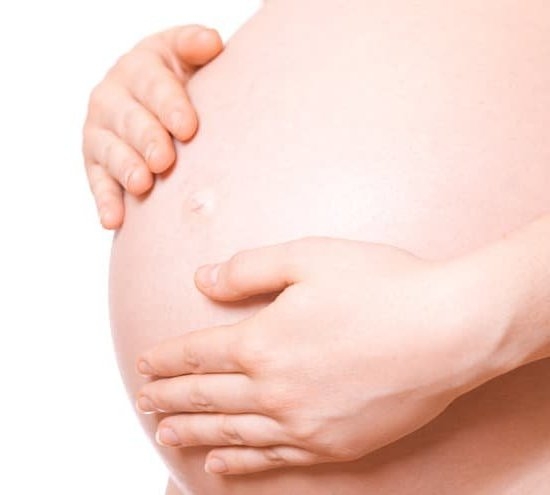When is the earliest you can take a pregnancy test? This question often arises in the minds of individuals who are eager to determine if they are pregnant.
Understanding the importance of early pregnancy testing and addressing common misconceptions about the timing of these tests is crucial for accurate results. In this article, we will delve into the various aspects of early pregnancy testing, including the menstrual cycle, early pregnancy symptoms, types of pregnancy tests, and factors that can affect test results.
It’s essential to comprehend the significance of knowing the earliest time to take a pregnancy test. Whether it’s anticipation or concern, obtaining timely and accurate results can provide individuals with valuable information for their reproductive health journey. Additionally, dispelling myths and concerns about early testing can help individuals make informed decisions regarding when to take a pregnancy test.
Understanding your menstrual cycle plays a crucial role in determining the optimal time for taking a pregnancy test. The menstrual cycle and ovulation period significantly impact when a woman can accurately detect a potential pregnancy through testing. By examining these foundational elements of reproductive health, individuals can gain insight into how their cycle influences the timing and accuracy of a pregnancy test.
Understanding Your Menstrual Cycle
- The menstrual cycle is an essential factor to consider when determining the earliest you can take a pregnancy test. It typically lasts around 28 days, although this can vary from woman to woman. Ovulation, the release of an egg from the ovary, usually occurs around day 14 of the cycle for women with a 28-day cycle.
However, ovulation can occur earlier or later in the cycle for some women. Understanding your own menstrual cycle and tracking it can help you determine when is the best time to take a pregnancy test. - There are various methods to track your menstrual cycle and predict ovulation, including using ovulation predictor kits, monitoring basal body temperature, and observing changes in cervical mucus. By identifying when you are most fertile within your cycle, you can also determine when it is appropriate to take a pregnancy test for accurate results.
- Additionally, irregular menstrual cycles can impact the timing of pregnancy testing. Women with irregular periods may find it more challenging to predict their ovulation window and may need to wait longer before taking a pregnancy test for reliable results. When is the earliest you can take a pregnancy test largely depends on understanding and tracking your menstrual cycle accurately.
Early Pregnancy Symptoms
One of the most common questions that women have is “when is the earliest you can take a pregnancy test?” This question often arises due to the presence of potential early pregnancy symptoms. It’s important to note that early pregnancy symptoms can vary from woman to woman, and not all women experience the same signs in the early stages of pregnancy. However, some common early pregnancy symptoms include missed periods, nausea, breast tenderness, fatigue, and frequent urination.
These symptoms typically occur as a result of hormonal changes in the body after conception. While these signs can indicate a possible pregnancy, they may also be attributed to other factors such as stress or hormonal fluctuations. Therefore, it’s essential to consider these symptoms as potential indicators but not definitive proof of pregnancy. When experiencing any of these early pregnancy symptoms, many women are eager to take a test as soon as possible to confirm their suspicions.
Impact on Timing of Pregnancy Test
Understanding early pregnancy symptoms is crucial for determining the timing of a pregnancy test. The appearance of these signs may prompt women to take a test earlier than recommended. It’s important to remember that the timing of a pregnancy test is closely linked to the menstrual cycle and ovulation period.
Most home pregnancy tests claim to provide accurate results within a few days before or after a missed period. However, taking a test too early may result in false-negative results due to low levels of hCG (human chorionic gonadotropin) hormone present in the body during early pregnancy.
Therefore, while being aware of potential early pregnancy symptoms is valuable, it’s equally important to consider the impact of menstrual cycle timing on testing accuracy. Proper understanding and awareness can help women make informed decisions about when to take a pregnancy test and achieve more reliable results.
| Early Pregnancy Symptoms | Impact on Timing of Pregnancy Test |
|---|---|
| Missed periods | Hormonal changes can affect menstrual cycle timing for testing accuracy |
| Nausea | May prompt earlier testing but should be considered along with menstrual cycle phase |
| Breast tenderness | Sensitivity can vary based on individual hormonal changes and cycles |
Types of Pregnancy Tests
There are several types of pregnancy tests available in the market, each with its own unique features and benefits. It is essential to understand the differences between these tests to make an informed decision about which one to use. Here is a comparison of the most common types of pregnancy tests:
- Urine Tests: These are the most commonly used at-home pregnancy tests. They detect the presence of human chorionic gonadotropin (hCG) in the urine, a hormone produced during pregnancy.
- Blood Tests: These tests, conducted at a healthcare provider’s office or clinic, measure the levels of hCG in the blood. Blood tests can detect pregnancy earlier than urine tests and provide more accurate results.
- Digital Tests: Digital pregnancy tests display results as clear “pregnant” or “not pregnant” on a digital screen, eliminating any ambiguities that may arise with traditional line-based tests.
When considering what type of pregnancy test to use, it’s important to factor in sensitivity and accuracy. Some tests are designed to detect lower levels of hCG and can deliver accurate results earlier in the pregnancy than others. Additionally, cost and ease of use are also important considerations when choosing a pregnancy test.
In general, early testing using an at-home urine test can be done as early as five days before your expected period. However, for best results in early detection, it is advisable to wait until one week after your missed period before taking a home pregnancy test. This will help reduce the chances of receiving a false negative result due to low hCG levels in the early stages of pregnancy.
It’s important to note that regardless of the type of test chosen, following the instructions carefully and testing first thing in the morning when hCG levels are highest will help ensure the most accurate results possible for early detection.
When Is the Earliest You Can Take a Pregnancy Test
Understanding the timing for taking a pregnancy test is crucial for accurate results. The earliest you can take a pregnancy test is typically around 11-14 days after ovulation, which is usually around the time when your period would be due. It’s important to note that the timing may vary depending on the length of your menstrual cycle and when you ovulate.
For women with regular menstrual cycles, it is recommended to wait until the first day of a missed period to take a pregnancy test for the most accurate results. If you have irregular cycles or are unsure about when you ovulated, it may be best to wait at least 19 days since possible conception before taking a pregnancy test.
Testing too early can result in false negatives as there may not be enough of the pregnancy hormone hCG (human chorionic gonadotropin) in your system to be detected by the test.
The best time of day to take a pregnancy test for accurate results is in the morning since your urine will contain the highest concentration of hCG at that time. However, many modern home pregnancy tests are sensitive enough to provide accurate results at any time of day. It’s always important to carefully read and follow the instructions on the pregnancy test kit to ensure accurate testing.
| Timing | Recommendation |
|---|---|
| 11-14 days after ovulation | Earliest recommended time for testing for those with regular menstrual cycles. |
| First day of missed period | Recommended testing time for best accuracy |
| Morning | Highest concentration of hCG present in urine for most accurate results |
Factors Affecting Early Pregnancy Test Results
Medical Conditions and Medications
When is the earliest you can take a pregnancy test? The timing of a pregnancy test can be affected by various factors, including certain medical conditions and medications. Medical conditions such as polycystic ovary syndrome (PCOS) or thyroid disorders can disrupt hormone levels, leading to inaccurate test results.
Similarly, some medications, such as fertility treatments or certain hormonal therapies, can also interfere with the accuracy of pregnancy tests. It’s important to consult with a healthcare professional if you have any concerns about how your medical history or current medications may impact the reliability of an early pregnancy test.
Lifestyle Factors
In addition to medical conditions and medications, lifestyle factors can also affect the results of early pregnancy tests. Factors such as excessive stress, extreme weight fluctuations, or irregular sleep patterns can potentially impact hormone levels and menstrual cycles, making it challenging to accurately determine the earliest time for testing. It’s essential to maintain a healthy lifestyle and manage stress levels when planning to take a pregnancy test in order to minimize potential disruptions to accurate results.
Fertility Treatments
For individuals undergoing fertility treatments, such as in vitro fertilization (IVF), the timing of a pregnancy test may differ from natural conception due to the use of fertility medications and procedures. Fertility treatments can alter hormone levels and implantation timelines, which may require specific guidelines for when to take a pregnancy test. Consulting with a reproductive specialist is crucial in understanding the impact of fertility treatments on early testing and obtaining reliable results.
Navigating through factors that affect early pregnancy test results requires careful consideration and awareness of individual circumstances. It’s important to address any concerns with healthcare professionals for tailored guidance and support in achieving accurate early pregnancy detection.
Tips for Early Pregnancy Testing
Taking a pregnancy test can be an anxious and exciting time for many individuals, and knowing the earliest you can take a pregnancy test is crucial for obtaining accurate results. However, it’s important to remember that early testing may not always provide definitive results, and there are factors to consider when deciding the best time to take a pregnancy test.
One key factor to consider is the timing of your menstrual cycle. Understanding your menstrual cycle and pinpointing the ovulation period can help determine the earliest you can take a pregnancy test.
It’s generally recommended to wait until after you have missed your period before taking a pregnancy test in order to increase the accuracy of the results. Testing too early may result in a false negative, as the levels of hCG, the hormone detected in pregnancy tests, may not be sufficient for detection.
When considering taking an early pregnancy test, it’s important to be mindful of early pregnancy symptoms. While some individuals may experience symptoms such as breast tenderness, fatigue, and nausea shortly after conception, others may not experience any noticeable symptoms at all. It’s essential to pay attention to your body and consult with medical professionals if you have any concerns about potential early pregnancy symptoms.
In addition to understanding your menstrual cycle and being aware of potential symptoms, it’s crucial to use an accurate and reliable pregnancy test. Different types of tests are available in the market with varying sensitivity levels. Some tests can detect lower levels of hCG earlier than others, so carefully reading and following the instructions on the packaging is vital.
Keep in mind that testing with first-morning urine is often recommended for more accurate results due to higher concentrations of hCG at this time. Ultimately, seeking professional guidance from healthcare providers is advisable when determining the earliest you can take a pregnancy test for precise results and support throughout this process.
Seeking Professional Support
When it comes to early pregnancy testing, seeking professional support and guidance can play a crucial role in obtaining accurate results and understanding the implications of the test. Many individuals may feel overwhelmed or uncertain about the process of pregnancy testing, especially when trying to determine the earliest possible time for a test. This section aims to highlight the importance of consulting healthcare professionals for pregnancy testing and early pregnancy confirmation.
Importance of Medical Consultation
It is essential for individuals who are considering taking a pregnancy test to consult with a healthcare provider. A medical professional can offer valuable insights into the timing of the test, potential symptoms to look out for, and any other relevant factors that may impact the accuracy of the results. Additionally, they can address any concerns or questions regarding early pregnancy testing, providing personalized advice based on an individual’s medical history and reproductive health.
Medical Advice for Accurate Testing
Healthcare professionals can also offer guidance on obtaining accurate results from an early pregnancy test. They can advise on the best timing for taking a test within an individual’s menstrual cycle, as well as provide information on different types of pregnancy tests available in the market. Moreover, they can discuss any factors that may affect early pregnancy test results, such as medication use, fertility treatments, or underlying medical conditions.
Support and Guidance
Seeking professional support for early pregnancy testing not only ensures accurate results but also provides emotional support and guidance during this potentially overwhelming time. Healthcare providers can offer reassurance and resources for individuals navigating early pregnancy detection, addressing any uncertainties or anxieties that may arise during this process. Additionally, they can discuss options for ongoing prenatal care and provide referrals to specialists if needed.
In summary, seeking professional support for early pregnancy testing is vital in ensuring accurate results and receiving personalized guidance throughout the process. Healthcare professionals can offer valuable insights into timing, accuracy, and emotional support during this potentially uncertain time. Therefore, it is recommended to consult with a healthcare provider when considering an early pregnancy test.
Conclusion
In conclusion, understanding the earliest time to take a pregnancy test is crucial for individuals who are trying to conceive or may have concerns about potential pregnancy. By debunking common misconceptions and addressing the impact of the menstrual cycle on testing timing, this article has provided valuable insights into early pregnancy testing.
It is important to recognize that the earliest you can take a pregnancy test may vary depending on individual factors such as menstrual cycle length, ovulation period, and potential early pregnancy symptoms.
Additionally, the types of pregnancy tests available in the market, their sensitivity, accuracy, and factors that can affect test results have been discussed in detail. It is important to consider these factors when determining the best time to take a pregnancy test for accurate results. Equally important is seeking professional support and guidance when it comes to early pregnancy testing. Medical professionals can offer valuable advice, address concerns, and provide accurate testing options for those seeking confirmation of early pregnancy.
Ultimately, being mindful of one’s own body and understanding the importance of seeking medical advice for early pregnancy detection cannot be overstated. As such, individuals are encouraged to follow the tips and guidelines provided in this article for obtaining the most accurate results from an early pregnancy test. By staying informed and proactive about early pregnancy testing, individuals can make well-informed decisions and seek appropriate medical support when needed.
Frequently Asked Questions
How Soon Will a Pregnancy Test Read Positive?
A pregnancy test can read positive as soon as 10 days after conception, but for most accurate results, it’s best to wait until the first day of a missed period.
What Pregnancy Test Will Show the Earliest?
The pregnancy test that will show the earliest is the early result pregnancy test, which can detect pregnancy hormones in your urine up to 6 days before your missed period.
Can I Take a Pregnancy Test After 5 Days?
You can take a pregnancy test after 5 days from having unprotected sex, but it may be too early for an accurate result. It’s better to wait until closer to the expected start of your next menstrual cycle for more reliable results.

Welcome to my fertility blog. This is a space where I will be sharing my experiences as I navigate through the world of fertility treatments, as well as provide information and resources about fertility and pregnancy.





